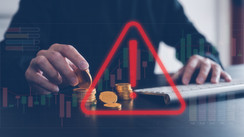Choosing a forex broker can be a real challenge for a new trader, especially with so many available. How do you understand what makes one better for you than another? And what are the most important points to consider?
In this post, we’ll tell you everything you need to know to choose the right forex broker, covering regulations, fees, and more.
Regulations and rules for forex brokers
Any trustworthy forex broker adheres to specific rules put in place by a regulatory body, such as the International Financial Services Commission, Commodity Futures Trading Commission, or National Futures Association.
Do a little research before you sign up with any forex broker you find online. Make sure they’re reputable, have a solid track record with clients, and are regulated by a noted organization (such as the IFSC, CTFC, NFA, etc.). You want to enjoy total peace of mind that your broker acts in your best interest with every trade.
Forex brokers should keep client funds in separate accounts to ensure they won’t be used for any reason other than executing trades (intentionally or accidentally). You may be able to recover some or all of your money if a broker uses it in an inappropriate way, depending on the regulations in your region.
Forex broker fees and charges
Fees vary from one broker to another, and they’re incredibly important: the more competitive a broker’s charges, the more likely they are to stand out from their rivals.
Research a broker’s fees before you sign up, so you know exactly how much their service will cost you in the long run. However, newcomers are advised to base decisions on more than charges alone: look at the broker’s reputation, services, support, etc.
Key terms you need to know when dealing with forex brokers
There are certain terms you should understand when you start dealing with a forex broker . Here’s a list of the essentials:
- Availability: funds are subject to third-party checks after being deposited into a trader account, and take time to clear before they become available
- Initial deposit: this refers to the opening deposit you make with your broker; there may be a minimum, and rewards could be available as an incentive
- Leverage: the amount of funds available for trading in relation to the trader’s actual investment, e.g. a leverage of 1:500 means traders will be given $500 for $1 of their own capital, offering greater trading freedom
- Bonuses: a broker might offer a bonus or a special promotion to stand out from others, helping your money go further (even if only as a one-off deal)
- Margin: margin accounts enable traders to borrow funds from the broker to make trades on a larger scale, offering you more flexibility than you have if you rely on your own investment capital alone
Choosing a forex broker can be a time-consuming, difficult process, but it’s crucial to take advantage of the advice available online. Read expert reviews and chat with other traders for balanced insights into your best options.
Your research will pay off when you find the right broker for your goals, budget, and trading plans.





